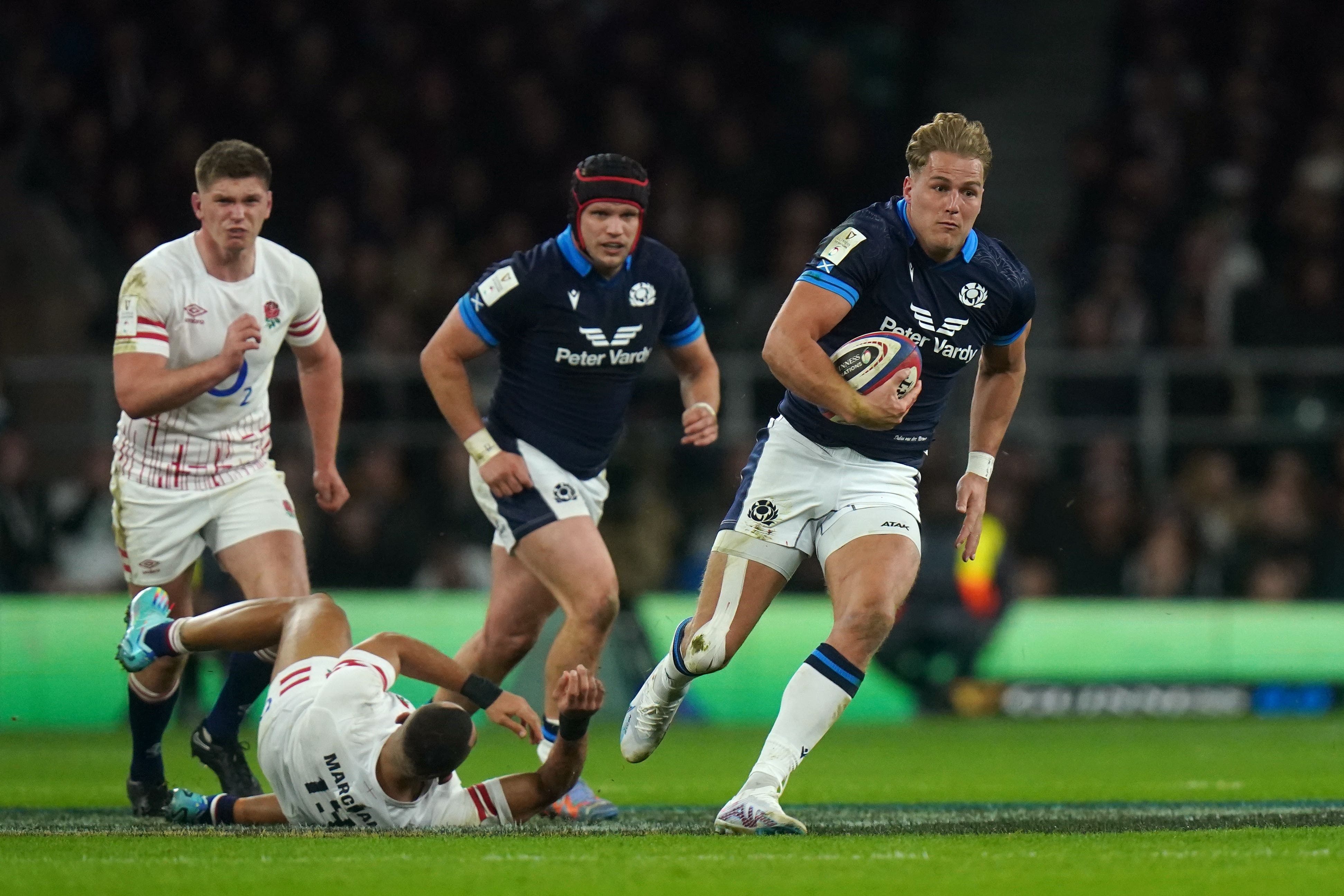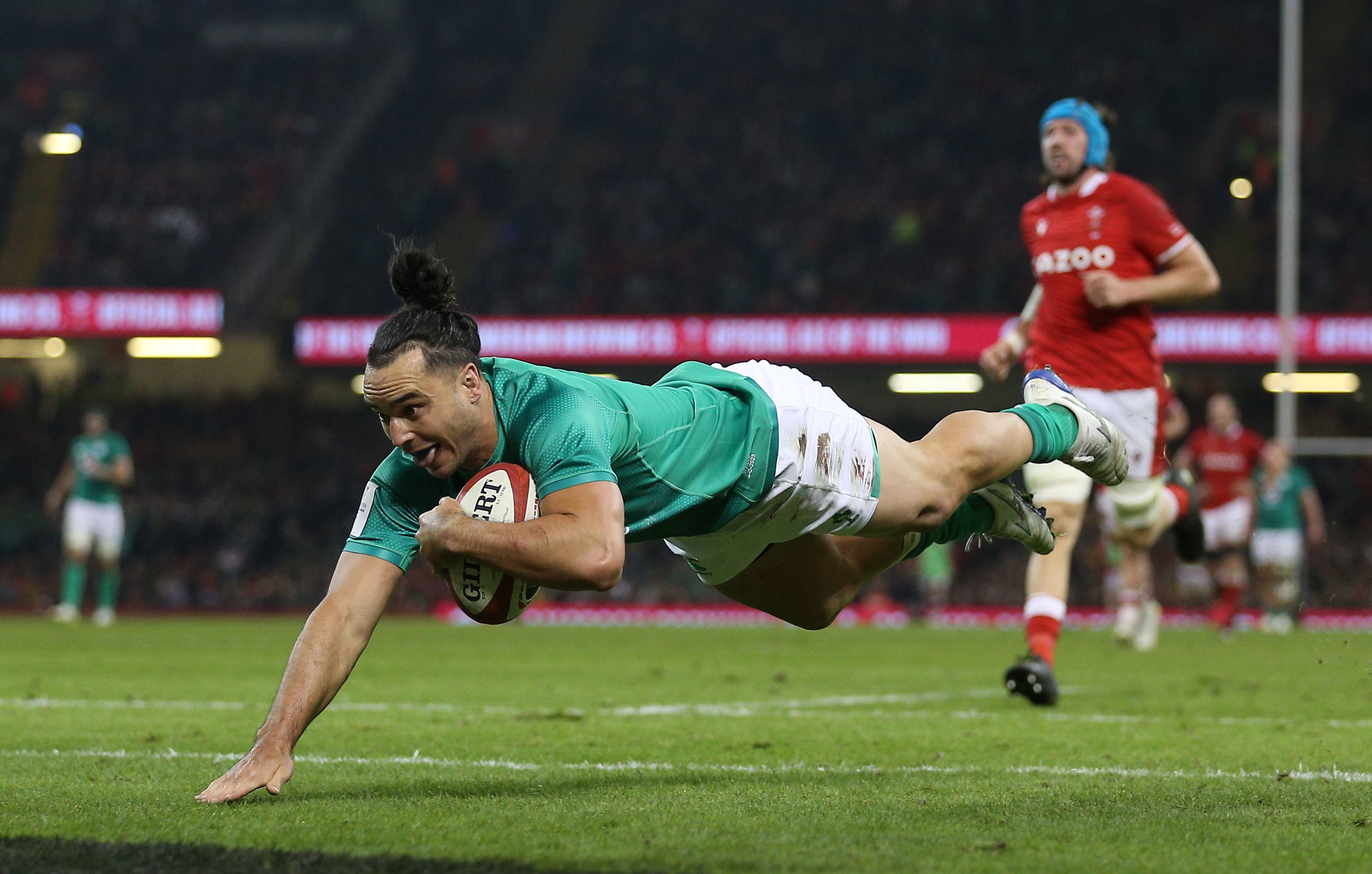New era, same issues for England as Scotland show road ahead
Scotland claimed the Calcutta Cup for a third straight year as Ireland and France also got off to winning starts in the Six Nations
Gregor Townsend savoured the moment. In the week ahead of Scotland’s Six Nations opener, their head coach had planted an asterisk against his side’s 2021 behind-closed-doors win – victory in front of a full Twickenham crowd would be another matter entirely.
There is no need for a caveat now. Come the cool of the February evening it was Scottish lips taking sweet sips from the Calcutta Cup for a third year in succession, the home of English rugby conquered again.
There was plenty of pain during Townsend’s playing days against England: 10 games, nine defeats to the auld enemy. Not since the curtailed Five Nations of 1972 had Scotland won three on the spin against England. But Townsend has forged a squad of history-makers, and as the former fly-half surveyed the landscape of a rivalry transformed under his rule, it was clear just how much it meant.
“I felt a lot of emotion at the final whistle,” said Townsend. “I don’t know whether it was because of the noise or the occasion. I never came close to winning here when I was a player. Two years ago there was no crowd here, so to do it today was emotional.
“That wasn’t our best performance. That’s now the exciting thing for us, that we can grow more in this tournament.”
It had been an odd sort of day, the atmosphere heavy with angst and anticipation as home supporters crossed their fingers for the Steve Borthwick regime. Ahead of kick-off, a Cumbrian call to arms – the England head coach’s words rumbling through the loudspeakers with a promise of “pride and passion”. Borthwick is no rousing rhetorician but there is a sense of a real connection already being forged between the head coach and his supporters.
He may need their goodwill. It was a mixed bag from the hosts, executing their game-control strategy to dominate territory but ultimately ceding points too easily to a clinical Scottish showing.
“We know we’ve got a lot of work to do,” Borthwick conceded afterwards. “I’ve been frank from day one in saying there’s a lot of work to do. When I looked at the team in the autumn, when I measured the team and got all the data, we weren’t good at anything.”

New era, same issues – Borthwick’s England have a long way to go. Transplant this performance into the last days of Jones and it might have been met with opprobrium rather than optimism, but there is an understanding that Borthwick will need time to make his presence felt and push through the teething problems.
The head coach specified the maul as an area in particular need of improvement, with England’s reluctance to trust their set-piece proving costly in allowing Scotland to strike quickly each time the hosts appeared to be taking control. Kevin Sinfield suggests he does his best thinking when on the run – the ease with which his defence was parted for all four Scottish scores will surely occupy the marathon man’s mind this week.
Of greater encouragement for home supporters were glimpses of attacking evolution. This was about the best performance yet from Marcus Smith and Owen Farrell, who seemed significantly clearer in their roles; Farrell kicked significantly less frequently than his midfield partner.
There were shades of Harlequins about Max Malins’s second score, with new attack coach Nick Evans’s preference for speed over shape apparent. Take Joe Marchant’s intelligent injection from a withheld position on Farrell’s inside, or Ollie Chessum and Ellis Genge combining as first and second receiver to ultimately create the space on the right for Malins to go over.
“I felt myself out there,” Smith explained. “Being able to work with [Nick Evans] at this level is brilliant. He challenges me to try things and learn new things, and I challenge him as well.
“It’s a new start for me. I was in the game, the plan was so drilled into us, so practised that I wasn’t thinking out there. We felt good as a team, but there were just a couple of moments where we need to keep our foot on the gas and put that team away because they are a good team.”
As if things couldn’t get any worse in Welsh rugby. It was a disastrous first half for the hosts in Cardiff, the game out of sight inside half an hour with Ireland already three tries and 24 points to the good.

Thirty-five missed Welsh tackles tell the story of Ireland’s physical supremacy in those opening skirmishes. It’s a major concern for Warren Gatland: his side as currently constructed is short of collision winners in both defence and attack, which contributed to moments of profligacy that perhaps could have been expected of another side under new guidance.
The positives for Wales, who were able to create chances throughout the 80 minutes, were the performances of the newer faces. Joe Hawkins had a fine game at inside centre, Rio Dyer grew and grew as a roaming threat off the left and both Jac Morgan and Tommy Reffell showed well in loose and tight. With Alun Wyn Jones out of the game against Scotland, Daffyd Jenkins is a likely starter in the second row, too, which is no bad thing – even in defeat, it felt clear that a wider look to the future might also be Gatland’s best hope of more immediate success.
A bonkers and brilliant performance from Italy, whose fearlessness in attack gave France an almighty fright. Given the youth of his squad and the clutch of key players absent, the signs that Kieran Crowley is building something significant show ever clearer.
But France, again, found a way, and stumble into a potential title decider against Ireland 14 games unbeaten. Though Shaun Edwards’s defensive review is unlikely to be kind, a scare of this sort may be no bad thing for a team seeking sustained success. Saturday’s trip to Dublin really does excite.



Join our commenting forum
Join thought-provoking conversations, follow other Independent readers and see their replies
Comments